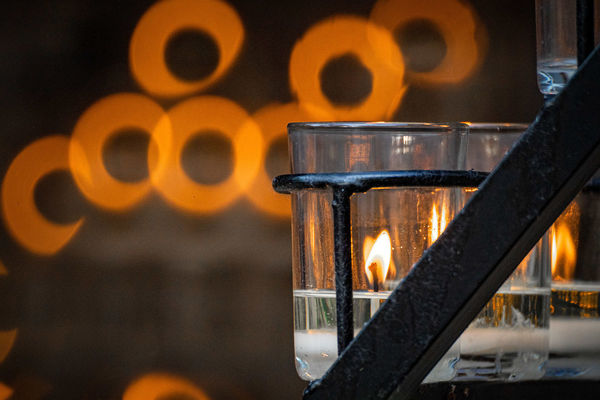
Kenyon S. Tweedell, a professor emeritus of biology who taught and conducted research at the University of Notre Dame for 34 years, died March 30. He was 97.
After graduating from high school, Tweedell served as a radarman second class in the U.S. Navy during World War II. Following the war, he earned bachelor’s, master’s and doctoral degrees in developmental biology from the University of Illinois. He taught for several years at the University of Maine before joining the biology department at Notre Dame in 1958, teaching pre-med and embryology courses.
Tweedell’s research into tumors in frogs was supported by grants from the American Cancer Society. His work took him every summer to the Marine Biological Laboratory in Woods Hole, Massachusetts, where he studied regeneration in small marine animals. He was a member of the American Society of Zoologists, Society for Developmental Biology, International Society of Developmental Biologists, Indiana Academy of Science and Sigma Xi.
Among the students who took his revered course on embryology was Eric Wieschaus, who, with two co-recipients, won the 1995 Nobel Prize in physiology or medicine.
“I saw my first embryos, frog embryos developing live, in the lab associated with Tweedell’s undergraduate courses in embryology,” Wieschaus, a professor at Princeton University, recalled. “Although lab time was limited and couldn’t cover all of development to the tadpole stages, Tweedell allowed me to stay late and return in the evening, and over the next week, to follow how things progressed. Until that lab, it had never occurred to me that one could watch a biological process while it was happening. I was fascinated; I wanted to understand how and why cells did what they did during development.
“I had found my scientific mission.”
Throughout Wieschaus’ remaining years at Notre Dame, Tweedell recognized that interest and encouraged him to apply to outside courses such as those at Woods Hole.
“He took me seriously as a scientist long before I became one,” Weischaus said. “That quality is central to a great teacher.”
In addition to his many contributions to the University, Tweedell kept careful records about biology department activities and people, which formed the basis of “The Lineage of Biological Sciences at the University of Notre Dame,” which he authored in 1999, according to Barbara Hellenthal, associate professor of the practice in the Department of Biological Sciences and the curator at the Biodiversity Museum and Herbarium.
“Thanks to Ken, we have a good record of the history of our department,” she said, adding that he maintained an office in the Galvin Life Sciences Building and in retirement remained interested in the department’s activities.
He was active in the South Bend-Elkhart Audubon Society and enjoyed gardening, singing in the church choir and maintaining his fitness.
“Ken was a common sight in the faculty workout room well into his 90s, lifting weights and doing calisthenics, and everyone thought he was decades younger than his real age,” said Gary Lamberti, professor of biological sciences and a former department chair.
Tweedell is survived by his wife of 65 years, Joan; five children; seven grandchildren; and one great-grandchild.
A Mass of Christian Burial was celebrated April 9 with interment at Notre Dame’s Cedar Grove Cemetery.
Memorial contributions may be made to the Marine Biological Laboratory, 7 MBL St., Woods Hole, MA, 02543 or St. Joseph Catholic Church, 226 N. Hill St., South Bend, IN, 46617.
Originally published by at news.nd.edu on April 16, 2021.